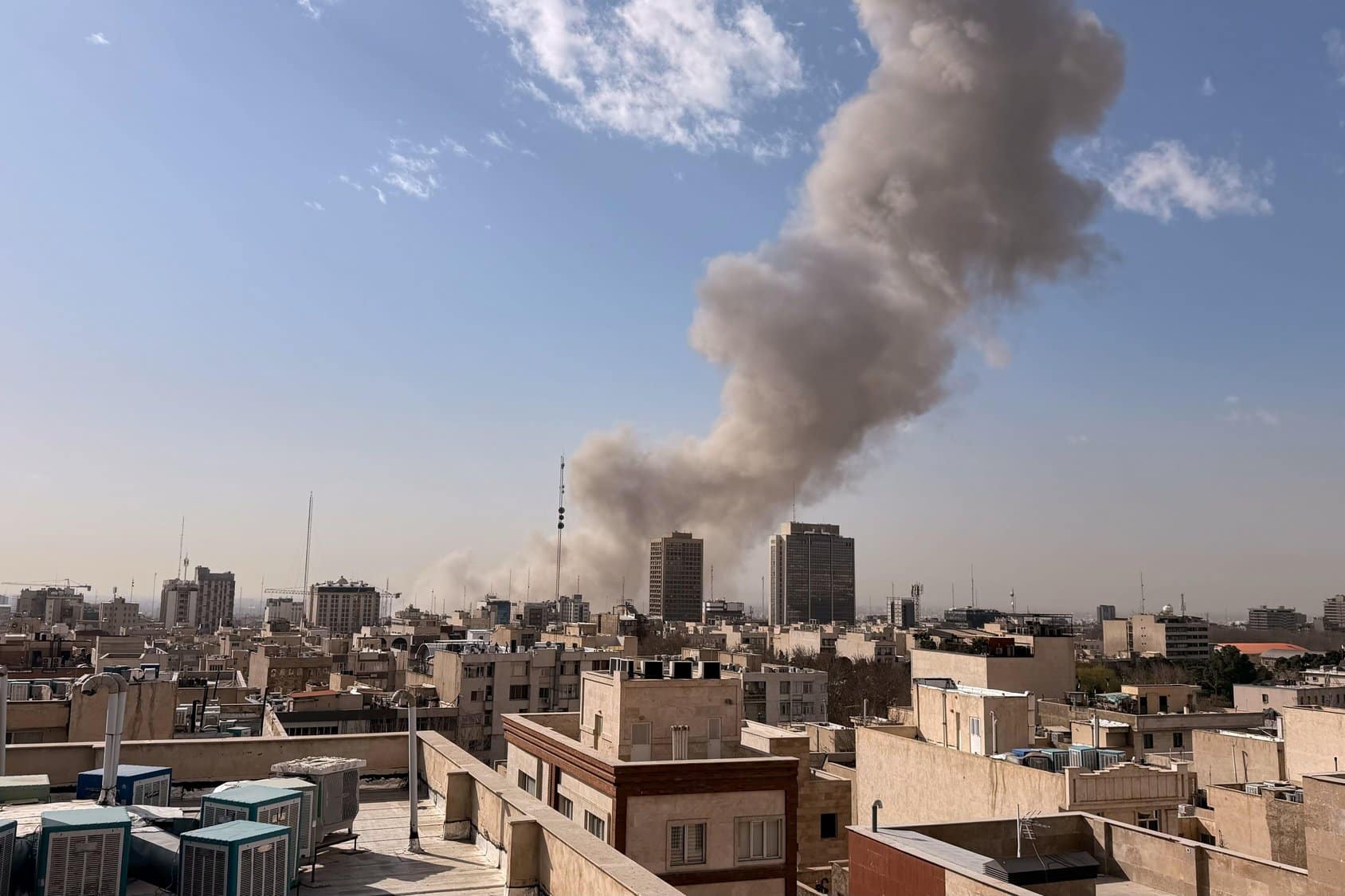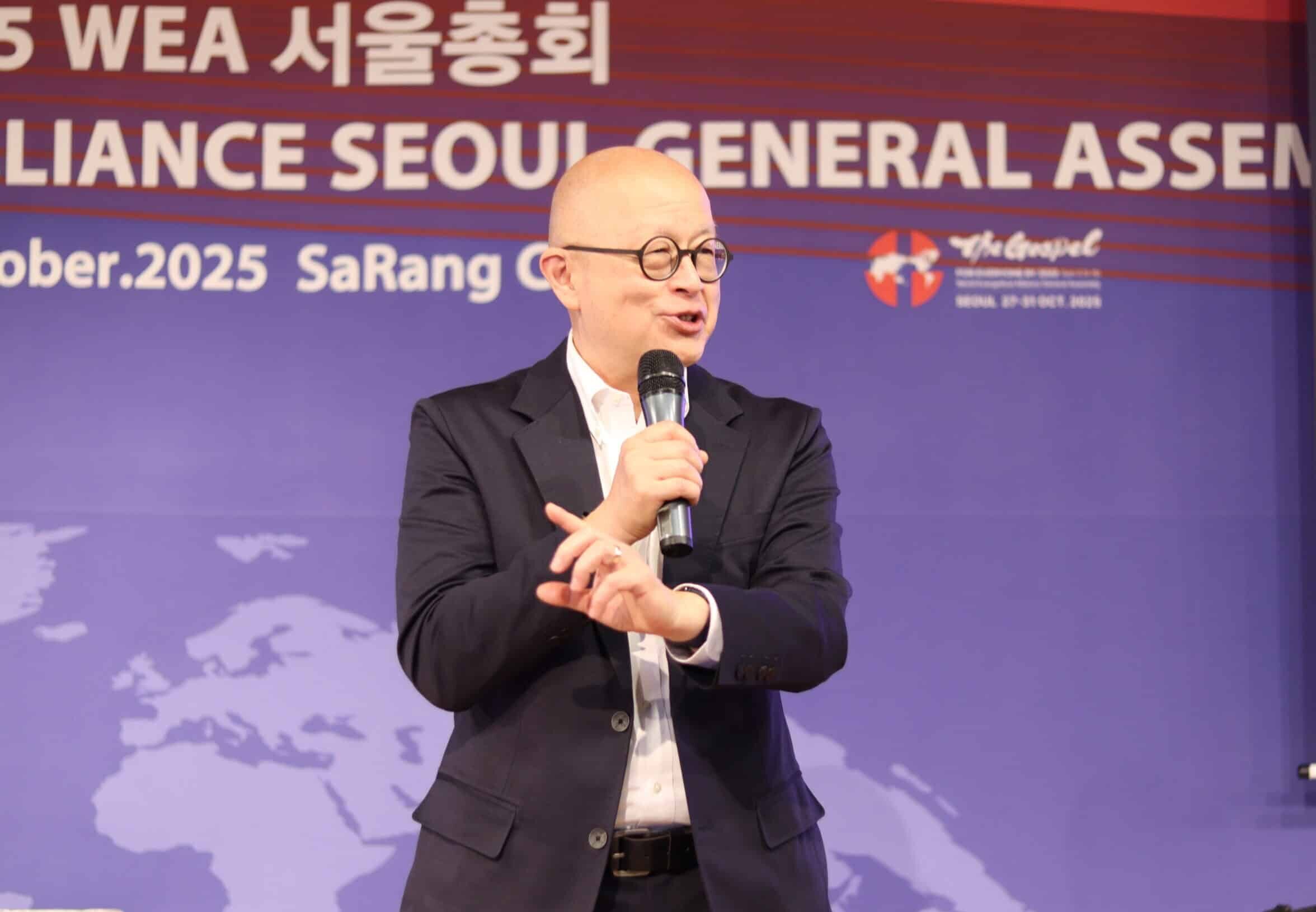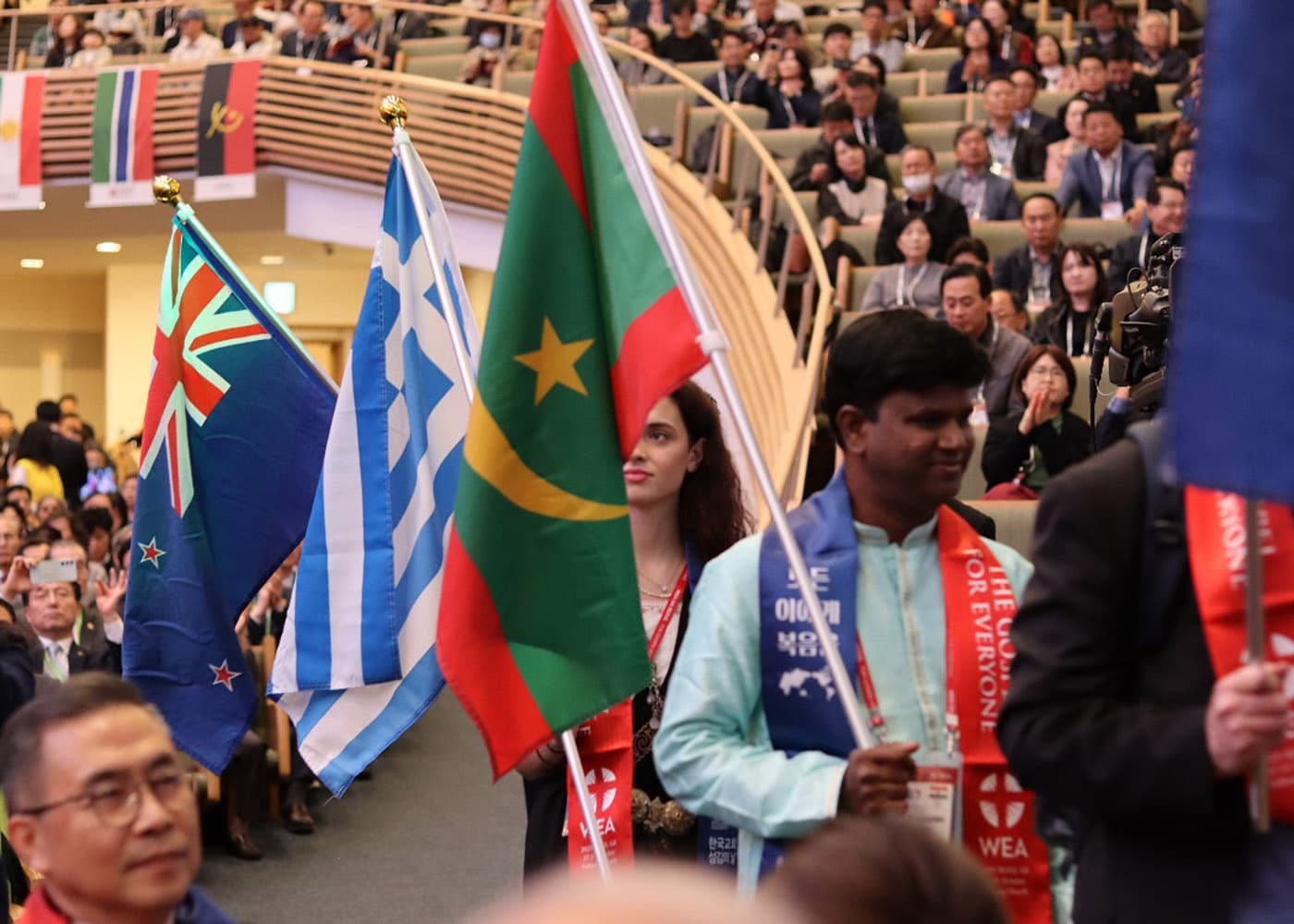Thomas Schirrmacher and Johannes Reimer
October 8, 2023, Istanbul, Future of the Gospel Forum of the World Evangelical Alliance
We offer these propositions not as any type of official statement or WEA policy, but based on our long experience as professors of missiology, traveling around the world and listening to many leaders around the globe.
This is a work in progress. All interaction and inputs are welcomed. This draft is available on the COMMISSIONED.App for direct interaction. Otherwise please send replies to [email protected]
We know that the Holy Spirit is ultimately responsible for the spread of the gospel of salvation in Jesus Christ throughout the world. He is the Lord of the mission of the new covenant (2 Cor. 3:17). Yet we are ambassadors for Christ, entrusted with the word of reconciliation—which compels us to communicate the gospel to others (2 Cor 5:18-20).
Effective communicators must understand the language, the culture and the spirit of the times in order to adequately bring the gospel to the people. Those concerned with the future of the gospel in the world should address the issues that matter to the world.
Our world is constantly changing. So are our languages, cultures, and ways of communication. Electronic means of communications have reshaped how the next generation thinks and acts—even in physical aspects such as how and when we move or what muscles are trained. We must embrace change in order to successfully communicate the never-changing Gospel.
In that spirit, we propose 11 topics that we believe are of vital importance as we seek to embody the gospel in cultures around the globe.
1. Globalization and migration, and, as a consequence, the emergence of diasporal communities. Today, more Armenians live outside than inside Armenia. Millions of Chinese, Koreans, and Filipinos are scattered all over the world. There are African communities in many European cities. We could give other similar examples. In view of these migratory flows, the proclamation of the gospel must also take on a migratory form.
The percentage of believers living in diaspora settings is growing, often against their will rather than by choice. Diaspora churches have urgent needs in-house as well as looking after their countrymen, but they also play a vital role in evangelism in many countries. In some Arab countries, expatriates represent the majority of believers in the country. The challenge for the WEA, with its structure of member alliances formed along national borders, is to help to integrate the diaspora into national evangelical alliances as equal partners and to develop global, self-governing networks along language or ethnic lines, as we have done with the new World Chinese Christianity Alliance (WCCA).
2. Urbanization and its consequences. The world’s cities are growing because people are rushing there in search of work, jobs and a better life. But many of these people end up in slums, in abject poverty, and with all the consequences of social degradation. Proclaiming the gospel to them entails seeking ways to improve their living conditions. The gospel must take on a practical form in these contexts. Evangelical churches—from megachurches to small congregations and house churches—are active in megacities. The WEA works closely with UN Habitat, which is responsible for considering the future of large cities and which is eager to receive our cooperation. We have specific global prayer networks and city-to-city cooperation.
3. The spread of the world religions, and its implications for mission and dialogue. In a globalized world, the larger religions are omnipresent. In addition, migration is bringing millions of non-Christians into countries that have been dominated by Christianity for centuries. This demands both knowledge of other religions and theological arguments for the gospel. Proclamation in the inter-religious space presupposes that the gospel has been freed from Western cultural baggage and takes on a form that is understandable to the people in that religious and cultural space. In many places, a good relationship with other religions, especially where the country has a state religion, is necessary to ensure protection of our churches. Many religious leaders want to cooperate with us against the growing threat of secular worldviews (or better secular religions) taking over societies—and not only in Western states. The WEA is very much involved in dialogue with top leaders of all religions, building up trust. Our approach to dialogue is never a replacement for telling the truth, but we need to invest in training believers in a manner of dialogue that produces friendships and a sophisticated view of others, in line with presenting the gospel of love.
4. Secularism and agnosticism in economically developed countries are pushing every religion into the private sphere. In addition, when an anti-religious secularism gains a foothold in national politics, religions including evangelical churches are marginalized or even criminalized, such as by radical advocates of same-sex marriage or transgenderism. In such contexts, proclamation of the gospel is quickly associated with the historic institutional appearance of the church. We need to deliberately decouple the gospel from the public images of the historic church. We also need large-scale equipping of evangelical leaders in how to cope with such situations.
5. Islam in its moderate form (like in Indonesia), in its form of a state religion in many countries, as well as is its violent extremist form offers Christianity unimagined challenges and opportunities for growth in many Islamic countries. But the success of the gospel in such countries is severely threatened by Christianity’s heavy dependence on Western precepts, which can quickly lead to confusion between Christian and Western values.
We need to encourage believers from Muslim backgrounds, especially their long-term leaders, to boldly develop their own strategies to reach their families, cultures and nations, independent from textbook ideas or approval from outside. They should also learn from the oriental churches that have lived under Muslim rule for centuries, and which until recently have wrongly been viewed as outside the true church because of unfortunate developments in church history more than 1,500 years ago. In addition, Western evangelical denominationalism is a threat here, because believers are scattered throughout different structures that do not focus on reaching the Muslim world and can make it difficult for leaders to sit together at one table.
6. Political multipolar confrontations on global and national levels. Different political systems are confronting each other and fighting for hegemony in the world. The China-USA conflict and Russia’s war against Ukraine, with all combatants seeking allies around the globe, are the primary examples here. Christianity tends to cling to Western liberal democratic ideas and is in danger of being confused with these systems. “Democracy” can become a religion, whereas despite the attractiveness of democratic ideals, in reality one needs to have a specific system of democracy and all of them have serious limitations, as current developments in the USA, Brazil or France show. The gospel, however, must not be subjugated to any political system, but must promote God’s kingdom and its values. We must thus reconsider the strong dependence of gospel proclamation on political views originating in the West.
This includes the urgent need to discuss how evangelicals and their churches should carry out their public engagement in countries where they constitute a large proportion of the voters. The cases of the USA and Brazil show that growing political power can cause the church to become absorbed into a political party or to become an appendage of a specific political party, which in public then overshadows what we really stand for. The everlasting gospel thus becomes mixed with ever-changing, temporal party politics.
7. Creation care as part of being human and of trusting the Creator. Men and women are created in God’s image (Gen 1:26) and have been ordained by God as stewards of his creation (“and preserve it”, Gen 2:15). Wherever the future of creation is at stake and solutions are discussed, we have to be in the middle of the mess, witnessing to the Creator and to our conviction that any solution for saving creation should include reconciliation with our Creator. We should also demonstrate that we ourselves are good stewards of creation and encourage the churches to set a positive example of honoring the Creator by protecting creation against greed and other evil motives in the hearts of humans who may be destroying it.
8. First Nations and oral cultures. The oldest North American mission society of 1787, the Society for Propagating the Gospel Among the Indians and Others, stated in its charter as its goal, to make the Indians “English in language and Christian in religion.” Even though the gospel was successful among many of the First Nations of this world, many churches globally, in conjunction with a wide-ranging political reappraisal of the past, have started to study their mistakes—or even crimes—and to reconsider the role of First Nations in the church, as well as their relationship to the followers of indigenous religions within the First Nations. We have to ensure that believers from those nations are heard and sit at the table, as well as to distinguish more fully between the Great Commission and efforts to civilize other nations along patterns of the industrialized world. In addition, we need to elaborate more on the role of land in our faith, as the First Nations often include this as a vital message from the Old Testament and as all matters around land are integral to any creation care engagement.
Besides the traditional ethnic oral cultures, which need their own kind of gospel presentation and their own local churches, we have rapidly growing de facto oral cultures around the world. This is partly due to poverty and poor people moving into large cities, but also because a large number of people even in educated countries depend on TV, visual communication, and electronic transmission rather than written text. The favelas in Brazil are just one example, and they also exhibit the potential for rapid growth of the church in oral communities. We also have to discuss how all the expertise gathered around oral cultures can be applied fruitfully in new situations.
9. AI and the gospel. The rapid development of AI technologies calls for careful consideration of how one proclaims the gospel in the digital world and how to react on issues from elder care (as robots expand their “caregiving” for older people) to theological formation, as AI may begin attempting to answer theological questions raised by people who are searching for God. We need to bring Bible-believing experts in AI together with the church to prepare for the future.
10. Historic churches and reformation or revival. We see several important developments in this regard. (1) Many historic denominations are splitting, either visibly or internally, into conservative and liberal camps over moral questions. (2) Historic churches in the Global South are distancing themselves from their more liberal mother churches in the West. (3) The inroads of the charismatic movement have left virtually all churches with large charismatic wings, which often relate closely to Charismatic or Pentecostal churches in the evangelical world. Charismatic movements in non-Protestant churches are pressing for joint evangelization; the reactions so far have revealed a wide range of different positions. (4) So-called independent churches, such as the African Instituted Churches, which have no official connection to Western church history, are growing rapidly in number and membership.
Evangelicals need to study and evaluate local, regional and global developments, to determine what all this means for our traditional portfolio of denominations and some inherited theological judgments, as well as for who is part of our global evangelical alliance family.
11. Bible literacy, disciples, untrained pastors. We rejoice in the incredible growth of the body of Christ in many places around the globe. Yet at the same time, we realize that the number of spiritual leaders needed to nurture the new churches is great. We need new initiatives bringing together global and local participants to promote Bible literacy, help mature new or rejuvenated believers through discipling, train a million untrained pastors, and expand the wide range of non-traditional and traditional education options. We must use multiple means to invest in emerging leaders and empower them in decision-making processes. We must ensure that the church of God is equipped with the leadership that the Holy Spirit has designed for his church according to Eph 4:11.
Many other topics could be added, and the WEA is involved in most of these in various ways. For example:
- failed states and the challenge of the church living in those states
- racism on all levels
- human trafficking including forced prostitution
- sexual abuse in general and sexual abuse of minors in the church context in specific
- oppression of women
- unholy acquisition and accumulation of wealth
- religious nationalism and its role in election campaigns
- genocides, including the overlap of persecution of Christians and genocidal goals
- the unborn and prolife movements
- the church’s role in aging cultures with a growing number of elderly people, such as in Europe, Japan or China
- the church’s role in cultures where young people make up the majority of the population, such as in Africa
- our churches’ inability to secure legal registration in many countries, sometimes at the behest of other religious groups





Stay Connected